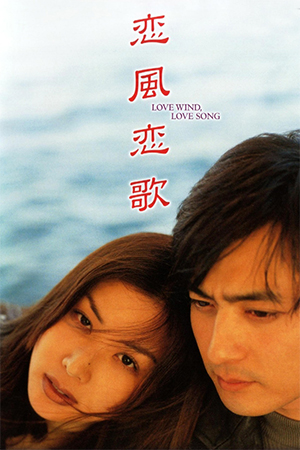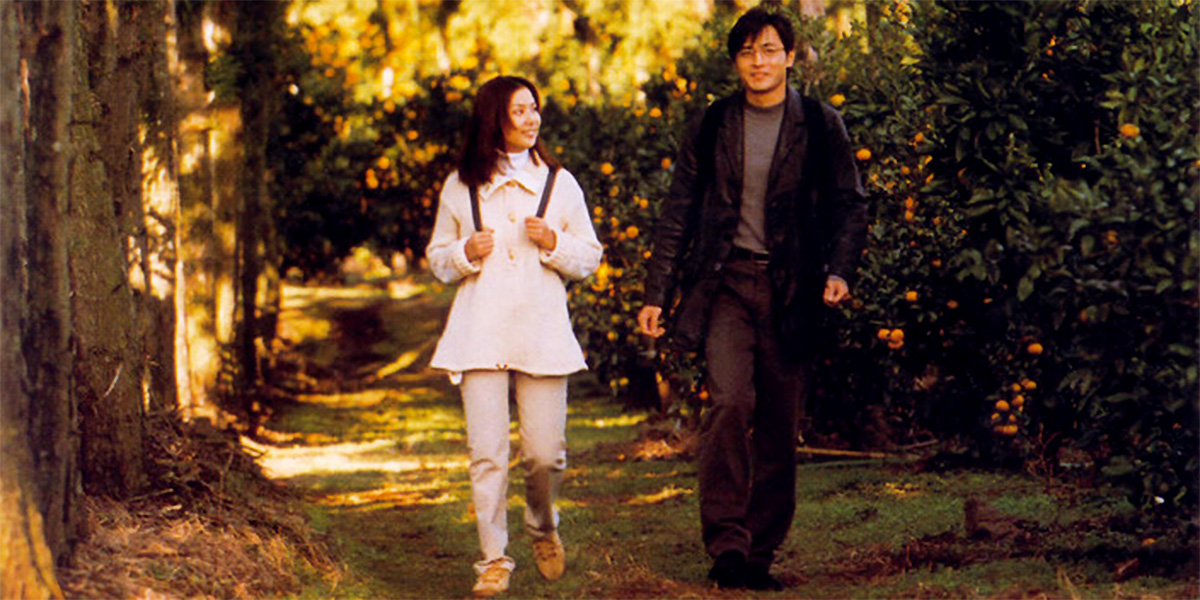If ever there was proof needed that an appealing leading pair and a gentle tenderness can effectively paper over the cracks inherent in a thin premise ‘Love Wind, Love Song’ would be it. The all-too easily forgotten facet of subtlety – a technique long since ignored here in the West – is at the heart of this simple, yet effortlessly watchable love story that is far more reliant on characterisation than the noise and fury of calculated incident.
With a mysterious motive in mind, emotionally fragile Seoul businessman Tae-hie decides to take a short break in the romantic island of Cheju. Not long after reaching his destination, Tae-hie foils a bag-snatch outside the airport and subsequently comes into contact with lonely tour guide Young-seo. Despite their respective emotional baggage, the pair quickly become friends and decide to spend some time together touring Cheju and the other outlying islands. Young-soo soon nurses an affection for the quiet and mild-mannered visitor, but finds her companion far more cautious about how he feels. The potential relationship reaches a stand-still when Tae-hi’s real reason for visiting Cheju becomes clear and Young-soo is left wondering what is really under his phlegmatic surface.
The first thing to admit about ‘Love Wind, Love Song’ is that, in the pantheon of romantic dramas, this is a lightweight entry. There are no sweeping moments of emotional resonance and hardly any real incident or epiphanies. Indeed, this Korean drama is the very essence of the oft-used phrase ‘slow-burn’. The narrative is very leisurely, almost deliberate, taking a good half hour of exposition before it begins to grip. Even then it is a very slight storyline with a brittle relationship at the centre that hinges on the charisma of its stars.
Despite the frailty of the premise – perhaps because of it – ‘Love Wind, Love Song’ retains a gentle dignity that makes the viewer root for the central protagonists. We’re always aware that, due to the nature of the genre, a union is almost certain, the journey to the conclusion, though, is fraught with obstacles that conspire against our couple. The closing twenty minutes may be a rehash of the usual ‘will they, wont they’ rush to be with one another, but by this point we have developed a feeling for both Tae-hie and Young-soo that means we are just eager to see a happy resolution.
The fact that the awkward pacing of ‘Love Wind, Love Song’ never jeopardises the entire film is an accomplishment. The main reason for this is that the love story is believable and has a subtle realism that few achieve. Perhaps taking the story out of the usual Seoul setting helps this; the haunting landscapes of the outlying islands makes the overall feel of the production fresh and inviting. While it may ultimately be a weakness for the film to have little real incident, it could also be seen as a benefit to the smooth running of the focal storyline. The onus is on the two characters and the time they spend together, getting to know each other and slowly falling in love. There are a few minor sub-plots present, but the narrative is simple and not distracted by much exterior drama. This bare-bones execution may not be to all tastes though it does allow us time to familiarise ourselves with the lead pair.
‘Love Wind, Love Song’ is given extra impetus by the performance of its stars, in particular Ko So-Young who is effortlessly charming as the lovestruck Young-seo. Though her character may appear a little too desperate for companionship, it is not difficult to warm to her after just a few minutes of the actress’ fine work. Her charisma plays a significant part in the success of this modest, yet thoroughly heart-warming drama. This may not be substantial cinema, but it is impossible not to care about Park Dae-Yeong’s efforts.
- A Guilty Conscience - February 26, 2024
- River - February 12, 2024
- Perfect Days - January 31, 2024






